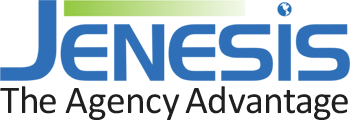
Your insurance agency website’s success largely depends on its ranking on search engine results pages and the strength of its backlinks. Weakness in these areas means low rankings and decreased visibility. Website authority can be improved using several methods, the most effective of which is Google E-A-T, or Expertise, Authoritativeness, and Trustworthiness. E-A-T is a principle consisting of three essential questions:
- How much knowledge do I have of the topic on my website?
- Is my website content valuable enough to attract influencers?
- Does my website provide accurate information and protect user data?
E-A-T first made waves in 2018, with many bloggers and website developers airing their opinion on these factors. However, in 2023, it is still on the back burner, which means websites are not benefiting from its implementation.
The E-A-T method doesn’t work overnight but instills a habit of slowly building a website’s authority. If you want your agency website to rank at the top of Google’s first page, you should constantly follow the E-A-T principle.
You can do this by following these steps:
Include Experience In The Equation
In December 2022, Google announced it would include a new factor in the E-A-T principle: experience. This update means you must have expert knowledge of your website content, provide valuable and accurate information, protect data, and demonstrate experience with the concepts you write about. It also means that some websites now refer to the principle of E-A-T as E-E-A-T.
For example, your insurance agency website should contain first-hand accounts of real-life insurance situations. It should also provide tips or strategies for handling these situations based on lived experience. Industry experts should write blogs and articles instead of content writers writing opinion pieces. By doing this, you can ensure that you demonstrate expertise in the subject matter while providing accurate information.
Fortunately, insurance management platforms like Jenesis make it easy to create and regularly publish blog content.
Improve Content Quality
Google has confirmed that its E-E-A-T update does not directly influence rankings but is a content-evaluating guideline. To prepare for these changes, you should update your existing website content to comply with the new content quality standards.
Doing this also means that your content writers or industry experts must include reliable sources in all written content. Ghostwriting won’t do it for the E-E-A-T requirements, so add writer bios and contact information for transparency.
Show SEO Authority
If you want to increase your insurance agency’s website authority, you should show your SEO authority. SEO expertise is of particular value in a niche insurance market. Use SEO tactics to allow search engines to understand what your website is about. To do this effectively, you should use your website content to promote your agency to online visitors and give the search engine algorithms context to help them distinguish your website from ambiguous topics and subjects.
You can provide context by using long-tail keywords in snippet content and then linking this content to your main website pages. When you’ve succeeded in making your content and your website relevant to users and search engines, it will be easier to establish your website’s authority.
Your content should always be linked and related. If you go too broad with your topics, it is difficult for Google and other search engines to determine the audiences to promote your website.
Build a Backlink Strategy
Backlinking requires a solid strategy which should ideally come from an SEO specialist or marketing team. Many insurance agencies make the mistake of adding random links to their content, thinking it will do the job.
Instead, backlinking requires a thoughtful approach. It is never about the number of backlinks but about the quality of each link. For example, your agency should aim for mentions and links on authoritative websites. Achieving this will improve your website’s authority and build your agency’s reputation as a leader in the insurance sector.
Consider the Importance of Being a YMYL Website
Insurance websites are YMYL (Your Money or Your Life) websites. This concept isn’t as dramatic as it sounds, but it means that your website content affects the financial stability of your readers. Other YMYL topics include news, government, law, health and wellness, shopping, and fitness.
The E-E-A-T principle is especially important for YMYL websites because Google doesn’t want to make mistakes when evaluating the experience, expertise, authority, and trustworthiness of content that affect the safety and well-being of online users.
YMYL content gets judged on expert recommendations and sometimes on customer ratings. If E-E-A-T scores are low on YMYL websites, the website may be regarded as low quality or assumed to provide potentially harmful information. It is difficult to bounce back from a low-quality rating, which means a website will struggle to rank in the search engine results pages.
Conclusion
The E-E-A-T principle can help build your agency’s credibility because it focuses on high-quality, accurate, and valuable information. Google is not interested in incorrect information sources because users who make decisions based on inaccurate online data can cause a hugely negative ripple effect in the real world.
E-E-A-T methods on YMYL websites ensure that online users only find authoritative content authored by experts to help them make informed decisions. The higher the E-E-A-T standards on your website, the better you can serve your customers and improve your site’s organic visibility.
